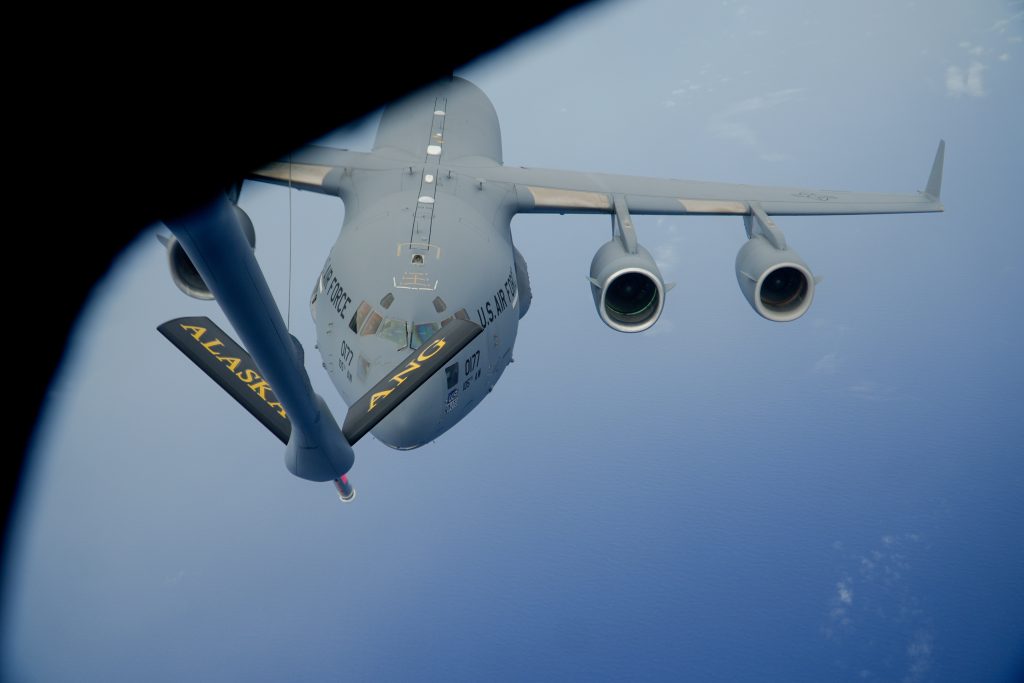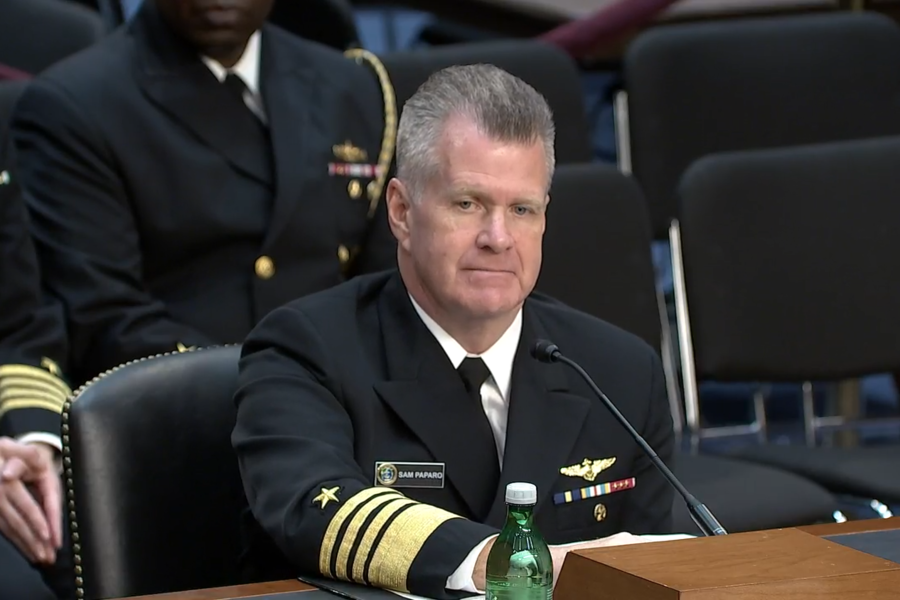Navy Adm. Samuel J. Paparo Jr., nominated to lead U.S. Indo-Pacific Command, said logistics—including its aerial refueling—will be top priorities for him if he is confirmed.
Currently commander of the U.S. Pacific Fleet, Paparo testified before the Senate Armed Services Committee on Feb. 1. He is in line to succeed Adm. John C. Aquilino, and once confirmed, would preside over the vast territory through the mid-2020s.
Lawmakers pressed Paparo for his views on China’s aggressive actions in the region and the potential that Chinese leader Xi Jinping could decide to invade the island of Taiwan in the coming years.
“I can’t directly express Xi Jinping’s attitude, but do see the actions of the People’s Liberation Army,” Paparo said. “I see an undaunted effort to extend its aggression as a revanchist, revisionist, and expansionist state, to reset the borders based on the logic of their military power. And I think we are in a global environment that is increasingly disordered, increasingly chaotic.”
That suggests the U.S. must shift to a “more forward, more distributed posture” in the region, Paparo said, and INDOPACOM must rethink how it supports that posture.
“Our logistics enterprise is built on the principles of efficiency over a time when we were focused on regional conflicts,” Paparo said. “Now under the contestation that we see from actors, we’ve got to build a logistics enterprise that’s based on the principles of effectiveness under fire.”
A naval aviator who spent time flying the F-15C with the Air Force on exchange duty, Paparo was asked specifically about aerial refueling and whether he had confidence in the KC-46 Pegasus tanker, which has been troubled by issues with its Remote Vision System and boom.
“I am concerned about the joint force’s ability to refuel a dynamic force operating in the air,” Paparo said. In separate written testimony, Paparo said fuel storage should be emphasized at different locations throughout the theater, and the joint force should experiment with “long-range, uncrewed, multi-domain platforms, both for operational missions and logistics transportation.”
Paparo continued to hammer home his emphasis on logistics later in the hearing when he said of U.S. Transportation Command that, “In deterrence, in competition, in crisis and conflict, it is very likely the most important COCOM-to-COCOM relationship we have.” The two are engaged in “habitual” planning to prepare for possible contingencies, he added.
Air Mobility Command and U.S. Transportation Command have been ramping up their efforts in the Indo-Pacific as of late, highlighted by AMC shifting its premier exercise, Mobility Guardian, to focus specifically on the Pacific in the summer of 2023.

All told, 70 aircraft and 3,000 personnel participated in operations in Hawaii, Guam, Australia, and Japan. Coming out of that exercise, AMC boss Gen. Mike Minihan said his main takeaways were the need to improve command relationships to prevent wasteful efforts, invest in beyond-line-of-sight communications, and work on ‘exploding into theater,’ defined by how quickly mobility Airmen can serve the joint force in an unfamiliar environment.
TRANSCOM commander Gen. Jacqueline D. Van Ovost told reporters in December that the exercise also highlighted “the importance of fuel throughout the theater and how do we support distributed operations around the globe; and the concepts of maneuver for our services … this ability to be able to disperse and then collect up again, so disaggregate to survive, aggregate to create an effect, and how we could do that more effectively across the vast region of the Indo-Pacific.”
Paparo appears to be on a glide path to confirmation to lead INDOPACOM. No lawmakers expressed opposition to his pick, and the backlog of general and flag officer nominees that piled up throughout 2023 has been mostly cleared. Dating back to its founding in 1947, every commander of INDOPACOM and its predecessor, U.S. Pacific Command, has been a Navy officer. No Air Force, Army, or Marine Corps officer has ever headed the command.
